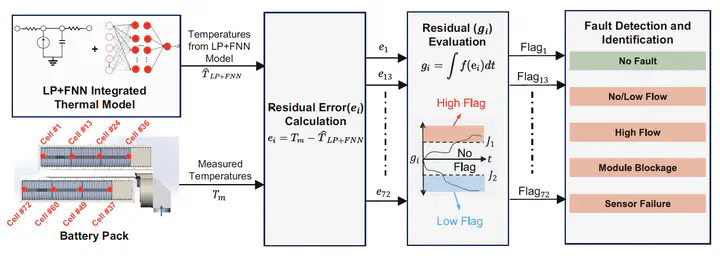Thermal fault detection of lithium-ion battery packs through an integrated physics and deep neural network based model
 Overview of the proposed fault detection and identification method.
Overview of the proposed fault detection and identification method.Abstract
Battery packs develop faults over time, many ofwhich are difficult to detect early. For instance, cooling system blockages raises temperatures but may not trigger alerts until protection limits are exceeded. This work presents amodel-based method for early thermal fault detection and identification in battery packs. By comparing measured and estimated temperatures, the method identifies faults including failed sensors, coolant pump malfunctions, and flow blockages. The core is a high-accuracy temperature estimation model, integrating a physics-based thermal model with a neural network, achieves a root mean square error of 0.39 °Cand a maximumerror of 1 °Cunder a US06 discharge and 6C charge at 15 °C. Tested on a 72-cell air-cooled pack, the method detects faults using only eight temperature sensors within 13 to 45 minutes, with zero false detections in 11 testing cycles. This approach enables early fault alerts, enhancing reliability and safety in electric vehicles.